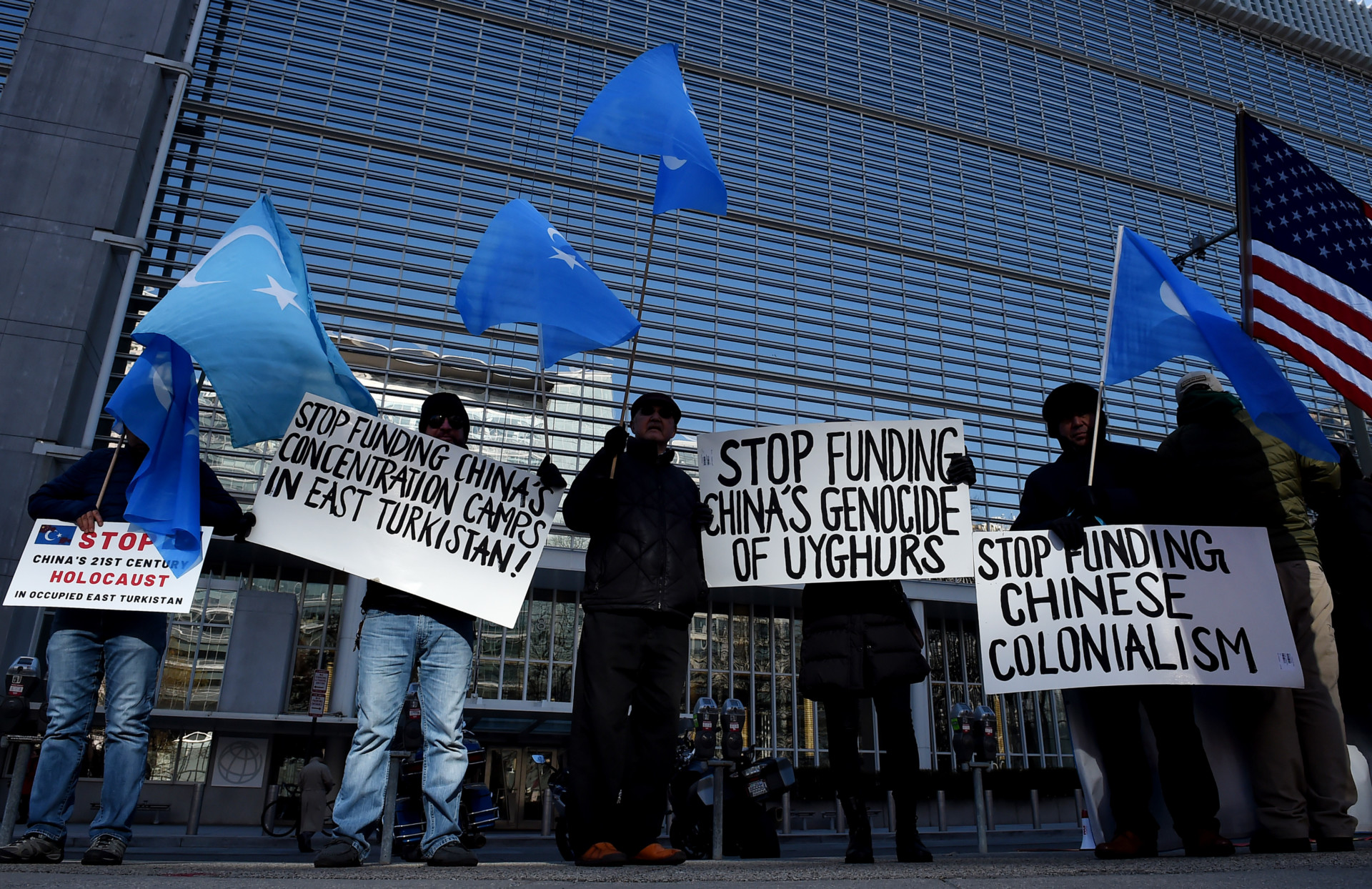The Uyghur Human Rights Policy Act (UHRPA), which seeks to pressure China to cease its mass internment, surveillance, and repression of its mostly Muslim Uyghur population, recently was approved by both houses of the U.S. Congress and subsequently signed by President Donald Trump. The bill, passed concurrently with China’s attempts to challenge the United States on several strategic fronts, marks an important first step in confronting Beijing for its actions against its Uyghur population, though alone it is unlikely to change China’s behavior both due to geopolitical factors and the extent of the actions stipulated by the bill itself. Furthermore, the bill’s authority internationally is weakened by revelations appearing the day of the bill’s signing from former National Security Advisor John Bolton that Trump had allegedly offered Xi Jinping his personal approval of the mass internment camps for purported Muslim extremists in the Uyghur homeland in the summer of 2019. Despite these unfortunate mixed messages from the administration, the bill does signal Washington’s willingness to make Uyghurs’ rights a part of its policy toward Beijing, and it initiates some important actions by the U.S. government that can be built upon by a more grassroots and international effort to hold China to account.
Why UHRPA?
In the past year, it has been frequently suggested that the United States and China are already engaged in the initial stages of a new Cold War. Many will assume, and China asserts, that the UHRPA is merely a component of this intensifying geopolitical conflict. Some supporters of this bill, which originated in 2018, see it as a geopolitical tool, but it also has widespread support among idealists who have been among the biggest champions for its adoption since its development began in 2018.
American foreign policy idealists of various political persuasions view China’s actions against its Uyghur population as a threat to the values they believe the United States must support internationally. For conservatives who champion the cause of international religious freedom, such as Rep. Chris Smith (R-NJ), Beijing’s forced erasure of Uyghur religious practices is a challenge to their fundamental beliefs. Likewise, for progressive voices in Congress, including Sen. Bernie Sanders (I-VT) and Rep. Ilhan Omar (D-MN), China’s ethnically profiled assault on the Uyghurs, and particularly its extralegal internment of a large swath of their population, is a clear example of systemic racism and a foreshadowing of potential genocide. Finally, for politicians of all stripes who still believe that the United States should play a prominent role globally in the protection of human rights, including those as ideologically opposed as Sens. Marco Rubio (R-FL) and Patrick Leahy (D-VT), this issue represents one of the gravest violations of rights in the world today and sets a dangerous precedent.
While the idealist roots of and bipartisan support for this legislation speak to both the gravity of the situation and the sincerity with which the bill was drafted, its adoption at a time of increased tensions between the United States and China will weaken its effectiveness as an international rallying call, especially in the context of Trump’s alleged approval of Xi’s actions against Uyghurs in the summer of 2019. However, this legislation is not just meant to carry symbolic meaning and an international call to action; it also seeks to fundamentally shape U.S. policy for the long term.
What is UHRPA?
Most of the bill consists of suggestions that the executive branch of the U.S. government use existing laws to pressure China to end its repression of Uyghurs and other indigenous peoples in the Xinjiang Uyghur Autonomous Region (XUAR). This includes sanctioning Chinese officials and businessmen directly involved in the violation of Uyghur human rights, ensuring that U.S. companies do not have products produced by Uyghur coerced labor in their supply chains, and protecting Uyghur refugees in the United States from Chinese harassment. Additionally, the legislation calls for increased federal support to Radio Free Asia’s Uyghur language service as well as U.S. advocacy at the United Nations and bilaterally with other countries to ensure the protection of Uyghur rights inside China and to prevent Uyghur extraditions to China.
While this makes the bill appear symbolic, its requirements for extensive annual reporting on the situation of the Uyghurs by U.S. government agencies and departments to Congress provides a mechanism to ensure that there is oversight of whether these suggestions are heeded. These reporting requirements include:
- A report from the president’s office on individuals in China, both state officials and business people, who should be sanctioned for their direct involvement in the violation of Uyghurs’ rights
- A report prepared by the State Department on human rights violations in the XUAR and the actions of the U.S. government to address these violations
- A report from the FBI that outlines all actions taken to protect Uyghur-Americans from Chinese harassment
- A report from the director of national intelligence with updated assessments on the Chinese companies involved in the building and operation of mass internment camps in the XUAR and/or the production of technology for surveillance in the region as well as on the role of the Xinjiang Production and Construction Corps in mass internment and coerced labor
The true power of the legislation lies in these reporting requirements, which allow Congress to hold any presidential administration to account for the actions requested by the bill. Additionally, it suggests a need for new government officials to lead divisions of each of these agencies and departments, which will be responsible for this reporting and related actions, thus effectively institutionalizing attention to the Uyghur issue in U.S. foreign policy considerations.
The stipulation that these reports be declassified and publicly available will further add to the evidence base of actions being taken against Uyghurs inside China, helping to propel further action to protect Uyghur rights whether by other states or by grassroots activists. All of these features of the bill could help put increased pressure on Beijing for the treatment of Uyghurs.
Necessary but Insufficient
The UHRPA is an important first step in holding China accountable for its treatment of Uyghurs, but it is unlikely on its own to change Beijing’s behavior. It does ensure that issues related to the Uyghurs remain more pronounced in U.S. foreign policy over the long term, and it institutionalizes the documentation of abuses against Uyghurs and their perpetrators. It also singles out important Chinese officials for potential sanctions, specifically Chen Quanguo, the party secretary of the Uyghur region, and his deputy, Zhu Hailun.
However, the type of sanctions it outlines for such individuals (asset blockage and visa restrictions) are unlikely to be very effective. Given the more general deterioration of U.S.-China relations, such officials will likely find it easy to avoid visiting or holding assets in America, and they may even see sanctions as a badge of honor. The bill does not adequately exercise the types of economic sanctions that could really leverage behavioral change in Beijing. That would require action against Chinese commercial interests benefiting from the Beijing’s industrial-scale suppression of Uyghur culture and isolating them from the global economy. Another bill has been introduced to Congress, The Uyghur Forced Labor Protection Act, that goes further in such actions and would be an important complement to the UHRPA, but there would be limits in that legislation’s ability to leverage change as well.
As I point out in an upcoming book about the Uyghur cultural genocide, the United States alone is unable to leverage change in China’s treatment of Uyghurs. Given the decline in U.S. influence globally and China’s increased international economic reach and power at the United Nations, China can ostensibly ignore American attempts to punish it for its actions. For these same reasons, it is also unlikely that other states will effectively challenge Beijing on this issue.
The only real way to pressure Beijing to change is through an international grassroots movement focused on boycotting products produced by Uyghur coerced labor and divesting from companies that are benefiting from Uyghurs’ repression. Given that it has been documented that numerous powerful international brand names have such products in their supply chains without their knowledge, this could create an exodus of international manufacturers from China, extracting real economic pain.
In this sense, perhaps the most important contribution of the UHRPA will be its requested documentation of such companies and products. However, it will take the mass mobilization of a global movement, the likes of the anti-Apartheid movement of the 1980s, to use this information effectively to inflict real economic pain on those who are profiting from the disappearance of Uyghurs and the destruction of their identity.
Dr. Sean R. Roberts is an Associate Professor in the Practice of International Affairs and Director of the International Development Studies program at The George Washington University’s Elliott School of International Affairs. He has studied the Uyghur people for 30 years, and he is the author of the upcoming book, The War on the Uyghurs: China’s Internal Campaign Against a Muslim Minority (Princeton University Press, 2020).
The views expressed in this article are those of the author and not an official policy or position of the Newlines Institute.







